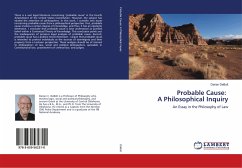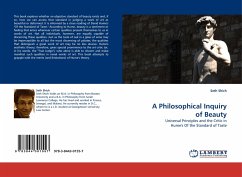There is a vast legal literature concerning "probable cause" in the Fourth Amendment of the United States Constitution. However, the subject has eluded the attention of philosophers. In this work, I consider two issues concerning probable cause from a philosophical perspective. First, probable cause involves a certain degree of knowledge, and thus, it has an epistemic dimension. I conclude that probable cause is best understood as justified belief within a Contextual Theory of Knowledge. This conclusion points out the inadequacies of previous legal analyses of probable cause. Second, probable cause has a politico-moral dimension. I argue that probable cause is intended to protect individuals as the sources of sovereignty and their property from a Lockean perspective. These analyses should be of interest to philosophers of law, social and political philosophers, specialists in Constitutional law, practitioners of criminal law, and judges.








